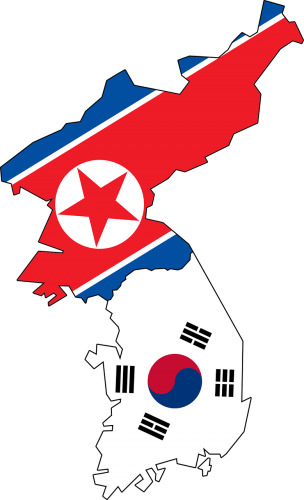Korean ecumenical partners pray for a turn from violence toward ‘dialogue and diplomacy’
by Kurt Esslinger | Special to Presbyterian News Service
 LOUISVILLE – This week the National Council of Churches in Korea (NCCK) recognizes a significant date along with other Korean partners of the Presbyterian Church (U.S.A.) including the Presbyterian Church of Korea and the Presbyterian Church in the Republic of Korea. August 15th marks 72 years since Korea was liberated from Japanese occupation at the end of World War II.
LOUISVILLE – This week the National Council of Churches in Korea (NCCK) recognizes a significant date along with other Korean partners of the Presbyterian Church (U.S.A.) including the Presbyterian Church of Korea and the Presbyterian Church in the Republic of Korea. August 15th marks 72 years since Korea was liberated from Japanese occupation at the end of World War II.
However, it also marks 72 years of division since the U.S. and the Soviet Union immediately decided, without Korean input, to divide the peninsula into two zones of influence under the pretense of cooperation. The cooperation never materialized and instead turned immediately into competition, which led to the creation of two separate nation states in 1948—first South Korea and within months North Korea. The Korean War followed only two years later and the peninsula has remained technically in a state of war since the signing of the armistice in 1953. Without a peace treaty, that state of war is set to continue indefinitely.
In this context, the NCCK takes this week each year to affirm its relationship with the Korean Christian Federation (KCF) of North Korea. Together the NCCK and KCF composed a joint prayer calling upon God to bring peace and reunification to the Korean Peninsula. This past Sunday, August 13th, they each held corresponding worship services utilizing the joint prayer for peace. The NCCK developed a worship liturgy resource that it shared with partners through the World Council of Churches so partners around the world could join in solidarity praying the same prayer with worshipers in South and North Korea.
This prayer and worship continue a decades-long movement for peaceful reconciliation of the conflict on the Korean Peninsula. The NCCK has also been running a campaign for a Korea peace treaty, calling on nations related to the Korean conflict such as the U.S., China and South Korea to move as soon as possible to negotiations for replacing the ceasefire agreement with a peace treaty.
Hope for this campaign took a hit this past week as violent rhetoric between the U.S. and North Korean administrations hit a fever pitch. While previous U.S. administrations relied on measured words and flights of nuclear capable bombers to threaten North Korea, President Trump stated in a press conference that the U.S. is ready to respond to North Korea with “fire and fury, and frankly power, the likes of which this world has never seen before.”
North Korea responded in kind by suggesting they were ready to strike U.S. military bases on the island of Guam, another U.S. occupied territory. Trump responded further with a tweet this time, claiming that U.S. forces were “fully in place, locked and loaded.”
Experts say such rhetoric could undermine whatever diplomatic efforts the State Department might be involved in behind the scenes. Even if moderate voices within North Korea are hoping for a diplomatic resolution, hardliners hoping for open conflict could point to a presidential tweet as proof that such diplomacy cannot be trusted.
The NCCK has called on support from all its international partners hoping to pressure government and military leaders to turn away from violent threats and to put their focus on dialogue and diplomacy. The NCCK sent an emergency letter to the newly inaugurated South Korean President Moon Jae-in asserting, “The road to peace is a difficult one, but the harder it gets the more important it is that we keep the principle. Dialogue is meant to resolve such extreme situation, which is why its affect is so highly valued. We cannot start sincere dialogues when we place blame for the opponent’s extreme actions or when we insist various pre-conditions for dialogue.”
The PC(USA) approved an overture at General Assembly 222 (2016) stating its intent to support the NCCK’s peace treaty campaign and to call on the U.S. government to pursue dialogue to peacefully resolve the conflict. The Office of Public Witness also released an action alert on August 11th asking U.S Presbyterians to contact their legislators and the President’s office to immediately de-escalate tensions and take steps to build cooperation, such as programs for people-to-people contact. The PC(USA) along with its partners in the NCCK asks you think of Korea on August 15th, to remember the hope for liberation from conflict and to keep it alive by adding your voice to those calling for peaceful resolution of the conflict.
—–
Kurt Esslinger and Hyeyoung Lee are PC(USA) World Mission mission-co workers serving in South Korea at the invitation of the Presbyterian Church of Korea.
![]() You may freely reuse and distribute this article in its entirety for non-commercial purposes in any medium. Please include author attribution, photography credits, and a link to the original article. This work is licensed under a Creative Commons Attribution-NonCommercial-NoDeratives 4.0 International License.
You may freely reuse and distribute this article in its entirety for non-commercial purposes in any medium. Please include author attribution, photography credits, and a link to the original article. This work is licensed under a Creative Commons Attribution-NonCommercial-NoDeratives 4.0 International License.
Categories: Advocacy & Social Justice, World Mission
Tags: conflict, ecumenical, esslinger, korea, NCCK, pcusa, presbyterian, Presbyterian Church of Korea
Ministries: Interfaith Relations, World Mission